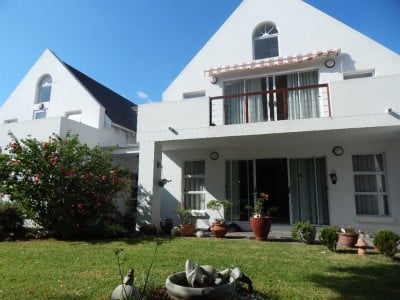Durban North is the perfect suburb.
That’s according to Mark Zeller, principal of Harcourts Meridian in Durban North, a specialist real estate agency that opened its doors in Glenashley’s thriving Ashley Avenue business hub last month.
Zeller’s assertion comes after the release of FM's annual suburbs survey (in partnership with Lightstone), which placed Durban North among KwaZulu-Natal’s top five suburbs for 2012 in terms of real estate value growth. He also measured the suburb against the criteria used in a survey of America’s best suburbs last year, which was featured on business website cnbc.com.
Says Zeller: “The perfect suburb, where you can be sure of realizing good long-term returns on your real estate investment, comprises eight critical components. These include location; lifestyle offering; reasonable commutes to workplaces; access to good schools, medical facilities and shops; upmarket neighbours; quality homes with a higher-than-national-average median value; comparatively low levels of crime; and a low unemployment rate among its permanent residents. Durban North ticks all these boxes.”
Honing in on location, which he describes as the ‘golden rule of real estate’, he says Durban North’s proximity to the beach as well as the bustling business hubs of Durban, La Lucia Ridge and Umhlanga, has entrenched its status as a sought-after residential destination. “People buy here with a long-term view, partly for the seaside lifestyle and partly because they know their properties will realize above-average capital growth.”
Another “tick” is the median value of its homes: Zeller says an average family home in Durban North costs in the region of R2 million, compared with the national average price for a middle size home, which ABSA put at R1 028, 900 in October 2012. “Values here have held fast during the recession and I expect them to start climbing as the market gains momentum.”
At the top end of the market, which boasts a large selection of luxurious homes, one can pay up to R18m – which is why Durban North tends to attract middle to upmarket buyers who intend putting down roots, he says.
The majority of Durban North’s residents are professionals, business owners and those in upmarket jobs, he notes further. “This translates into a stable community of likeminded residents, the majority of whom own their own homes and have the financial means to maintain and upgrade them. This ensures the continued aesthetic appeal of the area, which in turn ensures continued house price growth.”
Most sought-after areas include La Lucia, which despite its upper end pricing, has remained active throughout the downturn of the last few years. Zeller attributes this to it’s being a niche market which holds its real estate value well. Many of its buyers refuse to consider living anywhere else, he says, even if it means waiting for months, if not years, for a suitable home to come on to the market.
Glen Hills and Durban North proper are also enjoying steady buying activity, he says, with dominant interest from buyers in the R1,5m – R3m bracket. The current trend is toward either downsizing or up-scaling, with first time buyers, investors and foreigners conspicuous by their absence. That’s not to say, however, that the young or the ambitious are precluded from buying in the area. It just means that they would have to start with a one or two bedroom apartment, which Zeller says can be obtained for well below R1m.
For those with spending power in the mid- to late- R2 millions, and who have their sights set on a combination of security and privacy, the answer is often a simplex in one of the area’s many gated estates. Zeller says these are extremely sought-after and, if priced correctly, usually sell within weeks of being listed.
With regard to the lifestyle box, most of Durban North’s homes are a quick drive, if not a stroll, to the beach. Many of them also boast sea views, which Zeller says can push up brick-and-mortar value by anything from 25 percent to 100 percent. Aside from its seaside appeal, the suburb is also home to a number of nature reserves, dune forests and wetlands, which all add up to a healthy and attractive outdoor lifestyle.
Reasonable commuting distance is another benefit of the area. Zeller says the recently upgraded and well-maintained highways linking Durban North to Durban, Umhlanga and King Shaka International Airport ensure quick commutes to people’s workplaces. From an educational point of view, he notes further, parents have a wide range of schools to choose from – there are more than 50 public and private pre-primary, primary and high schools in the area. There’s also an abundance of medical and retail centres in and around the area.
Zeller, whose company specializes in residential and commercial sales and rentals as well as business brokerage, says his operation offers cutting-edge real estate technology that includes automated contact management and virtual tours, NQF-qualified sales consultants and a commitment to service - in line with the expectations of today’s buyers and sellers.



